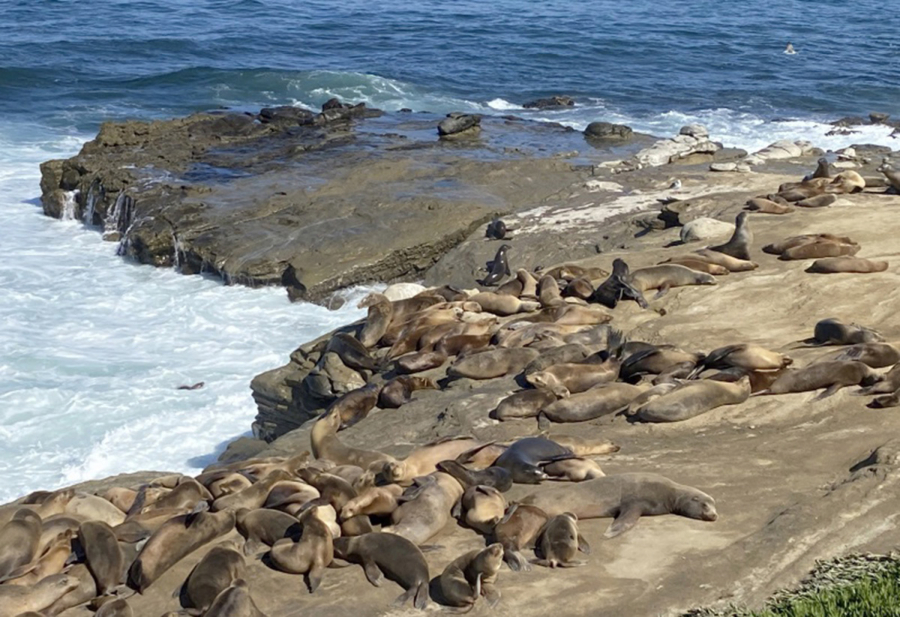SAN DIEGO — Point La Jolla, known as one of California’s prime sea lion rookeries, will no longer be accessible to the public after a unanimous vote by the San Diego City Council.
The move is intended to put some space between the sea lions and intrusive human visitors.
The 8-0 vote Monday afternoon amended the city’s municipal code to keep the beach closed year-round. Last year, a City Council-approved six-month closure took effect, shutting the beach from May through October.
The closure affects both Point La Jolla and adjacent Boomer Beach, a stretch of coastline of about 150 yards. The area is a top tourist attraction because California sea lions use it to rest, mate and raise their young.
The closed area does not include nearby Ellen Browning Scripps Park, Shell Beach or La Jolla Cove, the site of some previous perilous encounters between the animals and visitors.
Cherlyn Cac, a senior planner with the city’s Parks and Recreation Department, said the closure was originally instituted as a “result of harassment and problematic behavior between humans and the sea lion population.” Cac said visitors would approach the wild animals and try to touch them or take selfies next to them, posing a threat to the creatures and themselves.
After the six-month closure in 2022, the California Coastal Commission moved to extend it year-round at its meeting in the spring. The beach closure was marked by the presence of signs reading “area closed,” barriers and park rangers guarding the area.
Members of the public may still view the sea lions from behind the barriers lining the beach. An ocean access point is also maintained within the closed area for swimmers, body-surfers and other members of the public.
“It is important to note that the year-round closure would be in effect until the city can adopt long-term strategies to manage the area,” Cac said. Such strategies could include installing surveillance cameras or the addition of a gate at the entrance to the beach.
The closure was hailed by environmental groups such as the Sierra Club and the Audubon Society, both of which had representatives speak at Monday’s City Council meeting in favor of the measure. Carol Toye of the Sierra Club Seal Society said the closure not only addresses the issue of sea lion harassment but also protects the site for seabirds and plants, and will reduce human-caused erosion and litter.
“It’s critical we strike a balance between protecting marine life and marine mammals and ensuring safe public access to as much of our beaches as we can,” said Phil Musegaas, the executive director of San Diego Coastkeeper, a nonprofit clean-water advocacy group. “This initiative strikes that balance.”
Among those opposed to the closure, some said at the council meeting that the move could lead to shutting other public beaches. Others argued that the decision was made without keeping all local stakeholders in mind.
“It feels like the city is casting aside the community and the park with no respect and no regard,” said Bob Evans, president of La Jolla Parks & Beaches, a community advisory group.
Councilmember Joe LaCava, whose district includes Point La Jolla, said he was open to looking for a long-term solution that does not involve closing public access. But he said that for now the year-round closure was effective for the problem at hand.



